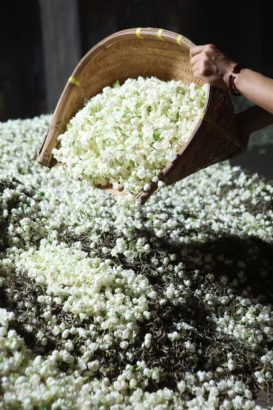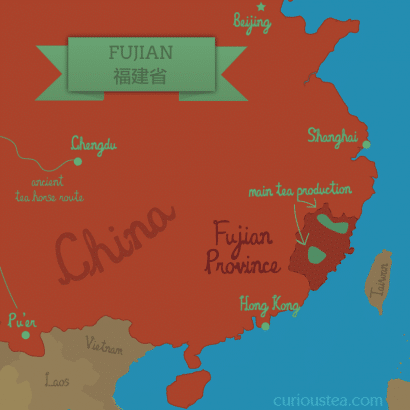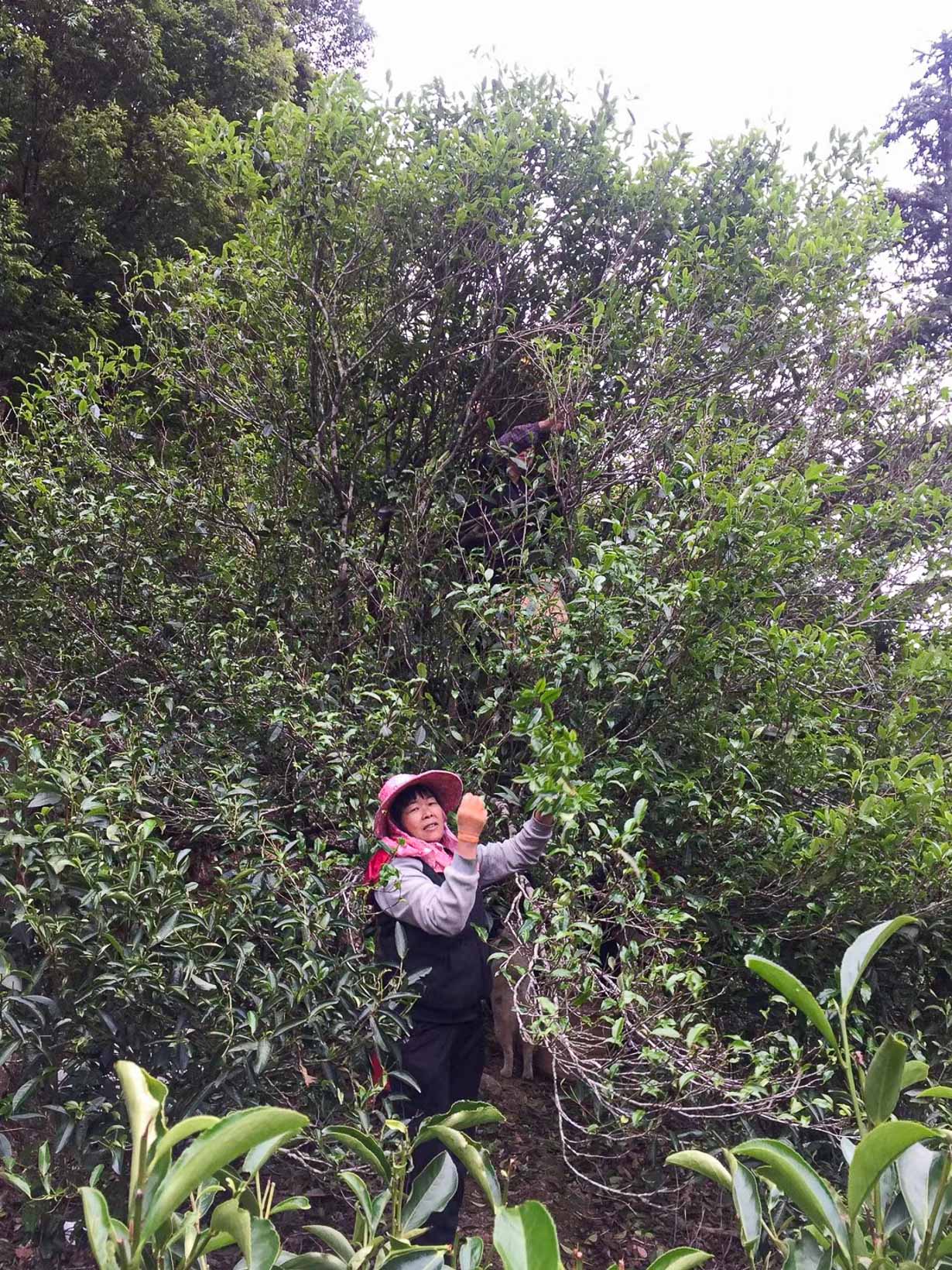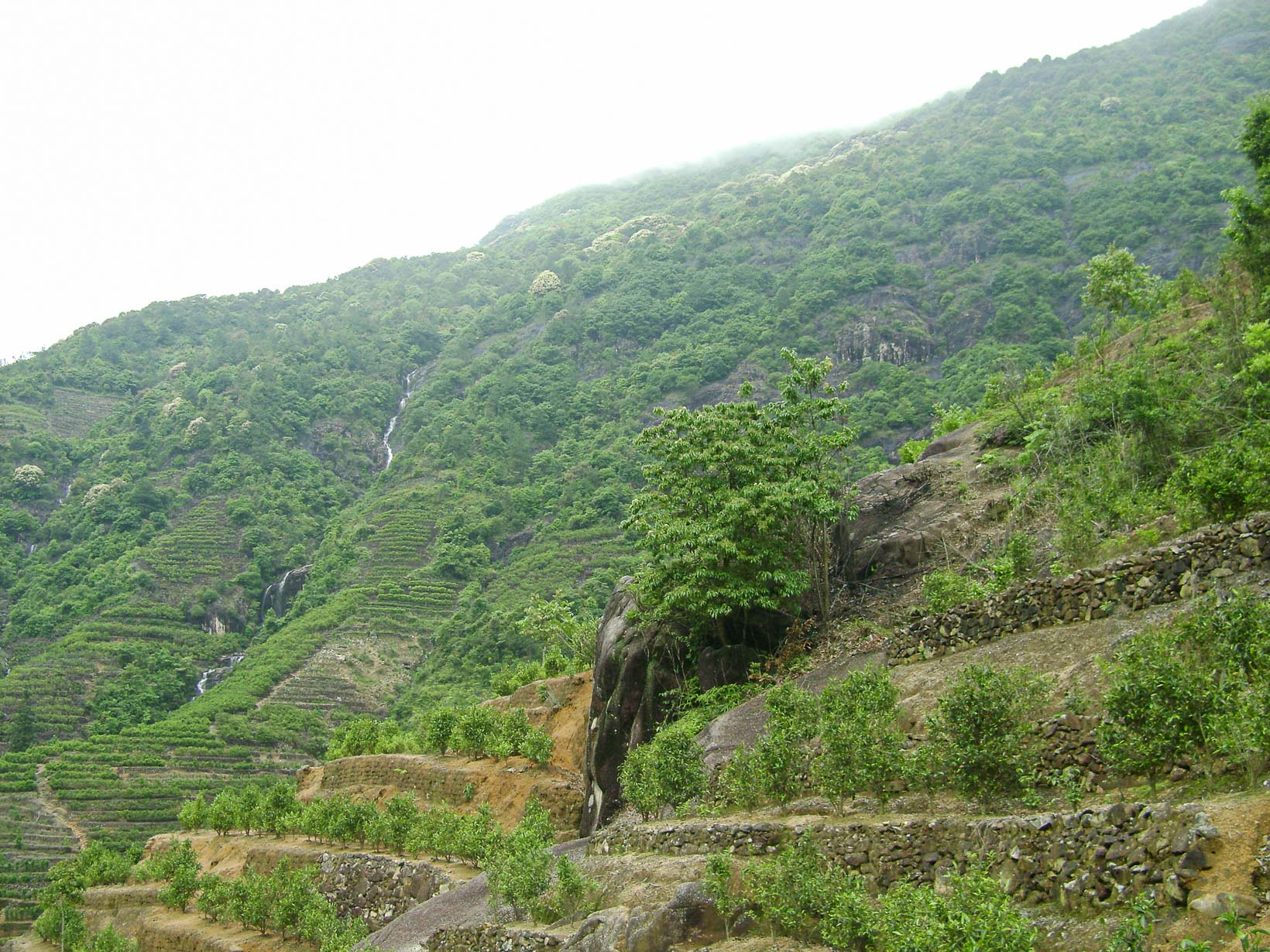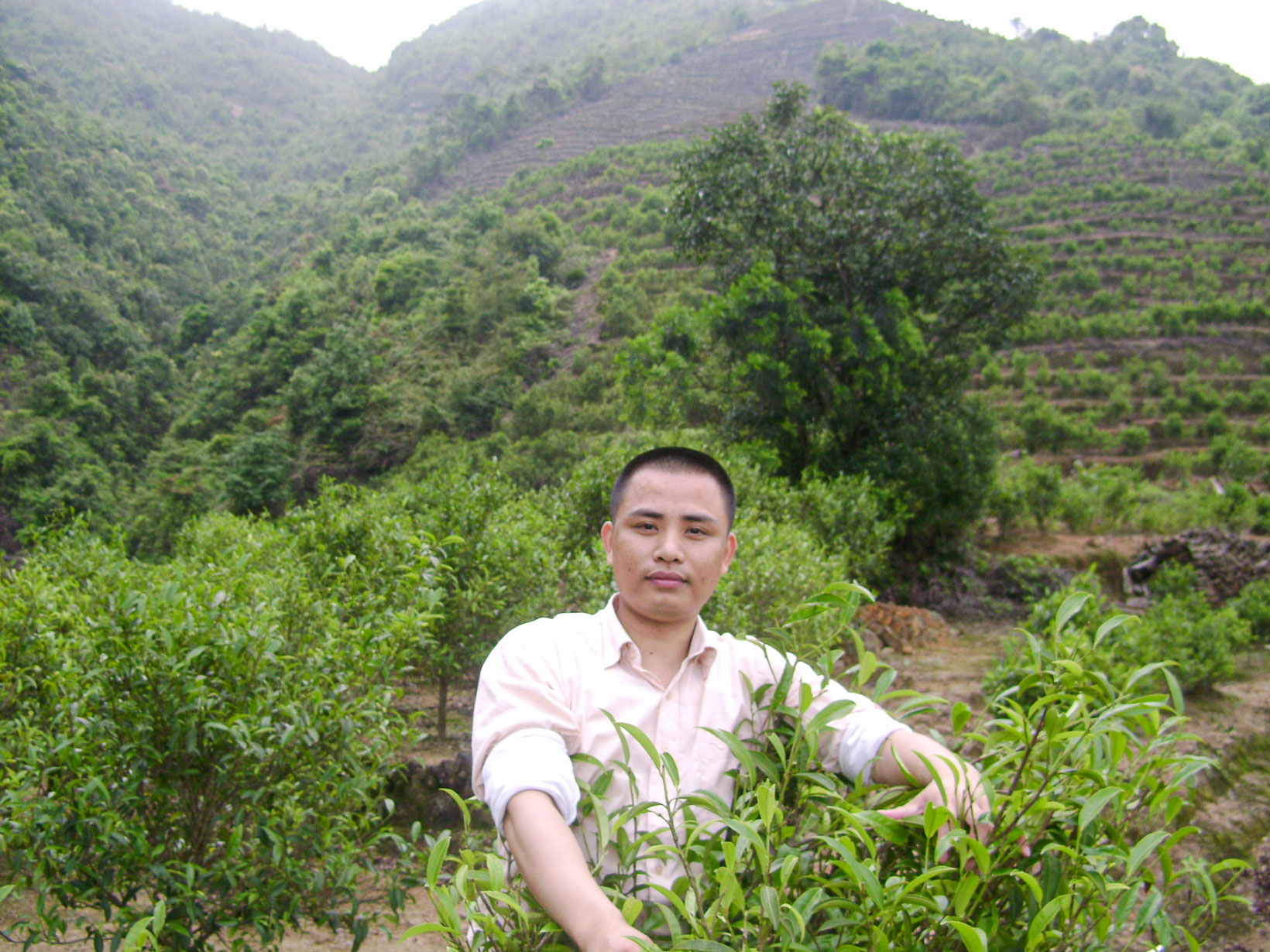Welcome to the May 2022 edition of the Curious Tea subscription! Here’s a closer look at the four exciting new teas that we are sharing with our subscribers this month. This month all of our teas hail from China!
The first light tea this month is a Silver Needle white tea from Fuding in Fujian Province that is scented with jasmine blossom to produce a smooth tea with a captivating aroma and taste.
The second light tea is a classic lightly oxidised Iron Goddess of Mercy Oolong from Anxi, also in Fujian Province.
For the dark side of the selection we have another tea from Fujian Province, this time from the famous Wu Yi Shan tea growing area, a high altitude Tu Cha black tea.
Finally, the last tea we are featuring this month is from Guangdong Province and it is a complex Eight Immortals Oolong that possesses a classic Dan Cong profile.
Our Discovery subscription boxes contain 10g taster pouches of all of the above mentioned teas. If you are a subscriber you will benefit from a 10% discount on all teas from our tea shop!
Let’s get into further detail on these teas featured in our May tea subscription boxes.
Yin Zhen Jasmine Silver Needle
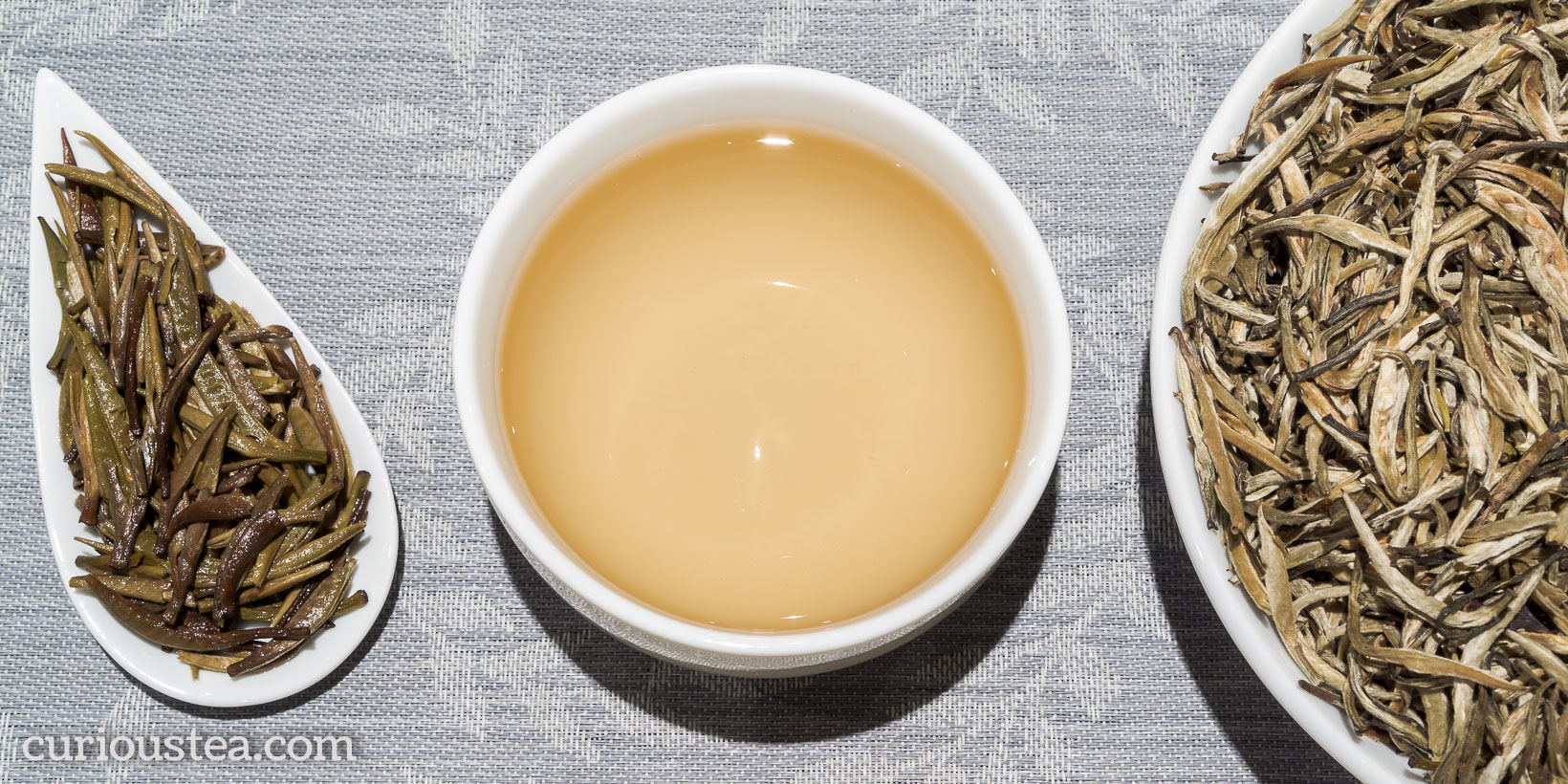
Yin Zhen Jasmine Silver Needle white tea (茉莉银针) is a jasmine scented white tea from our producer in Fuding, Fujian Province. It is grown in a fully organic tea garden at an altitude of 800-900m. Picked in April 2021, it was then scented with fresh jasmine blossom from Guangxi Province.
This Yin Zhen Jasmine Silver Needle is made from a well-known white tea cultivar Fuding Da Bai (福鼎大白 – Fuding Large White). This cultivar is one of the main two cultivars that is used to produce top grade Chinese Silver Needle white teas. This tea utilises only the buds or the tips of the tea plant. The scenting takes place using fresh jasmine blossom, which imparts a lovely jasmine scent to this delicate tea. After scenting the jasmine blossom is removed so as not to add any bitterness to the brewed tea.
The silver needles of this white tea have a lovely heady jasmine scent. The liquor is a pale golden colour with a pronounced jasmine aroma. This Yin Zhen Jasmine Silver Needle white tea has a beautifully light and crisp character with a clean and refreshing taste. The jasmine aroma is not too overpowering and does not take away from the delicateness of the white tea. The taste is balanced, with clean floral notes and a slight citrus aftertaste.
We suggest brewing at 80°C for 2-3 minutes according to your taste. Yin Zhen Jasmine Silver Needle white tea can be brewed 3 or more times depending on your taste preferences. As with all white teas, you can experiment with brewing times. Try either brewing this at a lower temperature (70°C) for 4-5 minutes or alternatively at 90°C for 60-90 seconds. Different brewing parameters produce quite different results so experimenting with the water temperature and steeping time is the best way of finding the brewing method that works best for you.
You can also buy Yin Zhen Jasmine Silver Needle white tea in our online shop.
Tie Guan Yin Iron Goddess of Mercy Oolong
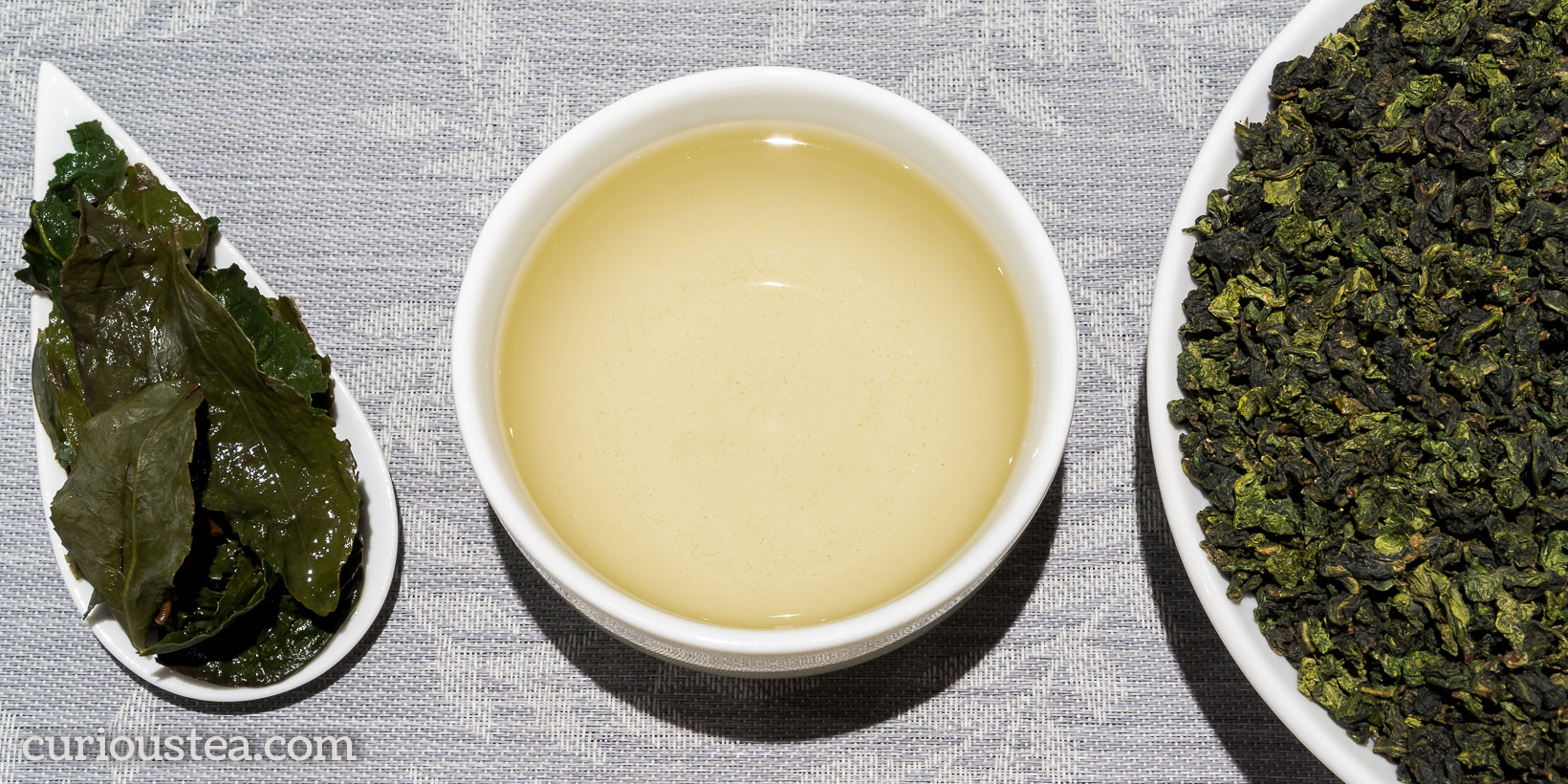
Tie Guan Yin (铁观音) Iron Goddess of Mercy is our premium version of a truly classic Chinese oolong. This one comes from Anxi County in Fujian Province, the birthplace of this very famous and popular tea. This Tie Guan Yin Oolong is an Anxi-style tea, which means that it is lightly oxidised, retaining many of the delicate floral aspects that are a closer to a light green tea without the grassiness or astringency. This type of oolong has become known as a ‘jade’ or ‘green’ oolong due to the light appearance and colour that is reflected both in the leaves of this tea as well as the light coloured liquor. This particular crop of our Tie Guan Yin Iron Goddess of Mercy oolong was plucked in spring, May 2021, in Anxi County of Fujian Province in China.
The tea is named after the Chinese name for a bodhisattva known in Sanskrit as Avalokiteśvara, Guan Yin (观音). Guan Yin is a buddhist bodhisattva usually associated with compassion; it is also known in Japan as Kannon Bosatsu (観音菩薩) and in Korea as Gwan-eum (관음). Other spellings and names for this tea include TGY, Ti Kuan Yin, Tit Kwun Yum, Ti Kwan Yin, Iron Buddha, Iron Goddess Oolong and Tea of the Iron Bodhisattva. The English name ‘Iron Goddess of Mercy’ is a literal translation of ‘Tie Guan Yin’ and is the most common English name for this Chinese oolong.
There are two legends that explain the origin of the name of Tie Guan Yin Iron Goddess of Mercy oolong. One tells a story of a scholar called Wang who discovered a tea plant under Guan Yin rock, brought it home and then cultivated this tea. When he brought this tea to the Emperor as a gift, the Emperor liked the tea so much he wondered where this tea originated. As it was found under the Guan Yin rock, it was decided to call it Guan Yin tea.
Another legend tells a story of a poor farmer called Wei. There was a temple with an iron statue of Guan Yin on the way from the tea fields that Wei walked past every day and he noticed that the condition of the temple was worsening. He decided to do something about it so he took it upon himself to clean the temple and light incense in it twice a week; he proceeded to do that over many months. One night Guan Yin appeared to him in his dream telling him that there was a cave behind the temple with treasure that awaited him. Upon entering the cave Wei discovered a tea plant shoot. He planted it in his field and nurtured it into a large tea bush. This tea plant produced the finest tea, so he shared the cuttings from this bush with all his neighbours. Wei and his neighbours started making and selling this fine tea under the name Tie Guan Yin. As they prospered from it, they were able to fully repair their beautiful temple.
This oolong undergoes a complex production process that results in quite a characteristic tea and is shared with other light Anxi-style oolong teas. The processing goes through the following stages: plucking of tea leaves, sun withering, cooling, tossing, withering with slight oxidation, further tossing and withering, fixation, rolling, drying, sorting and finally packing. As the tea nears the completion of this process, the distinctive colouration of the leaves becomes apparent. This can be seen on the dried leaves, they become quite light in colour on the edges, almost frosted in places. This is a distinguishable feature of a well-made and correctly processed Tie Guan Yin Iron Goddess of Mercy oolong.
The tightly rolled light green, jade coloured leaves of this Tie Guan Yin Iron Goddess of Mercy oolong have a slight green floral aroma. When brewed, the leaves unfurl, producing a pale golden clear liquor with a floral scent. The taste is light, with a pronounced floral profile and refreshing flavours of fresh green vegetables with a buttery note and a little sweetness reminiscent of red peppers. The lasting aftertaste has more floral flavours. This is a light and refreshing tea with a smooth and balanced flavour and no bitterness or astringency.
This oolong is best brewed at 90°C for around 3 minutes according to your taste and can be brewed more than 3 times, increasing steeping time with each next brew if desired.
You can also discover all four famous Anxi oolongs in our online shop: classic Tie Guan Yin Iron Goddess of Mercy, crisp and zesty Mao Xie Hairy Crab, refreshingly floral Ben Shan Source Mountain and the most floral Huang Jin Gui Golden Osmanthus.
Wu Yi Shan Tu Cha
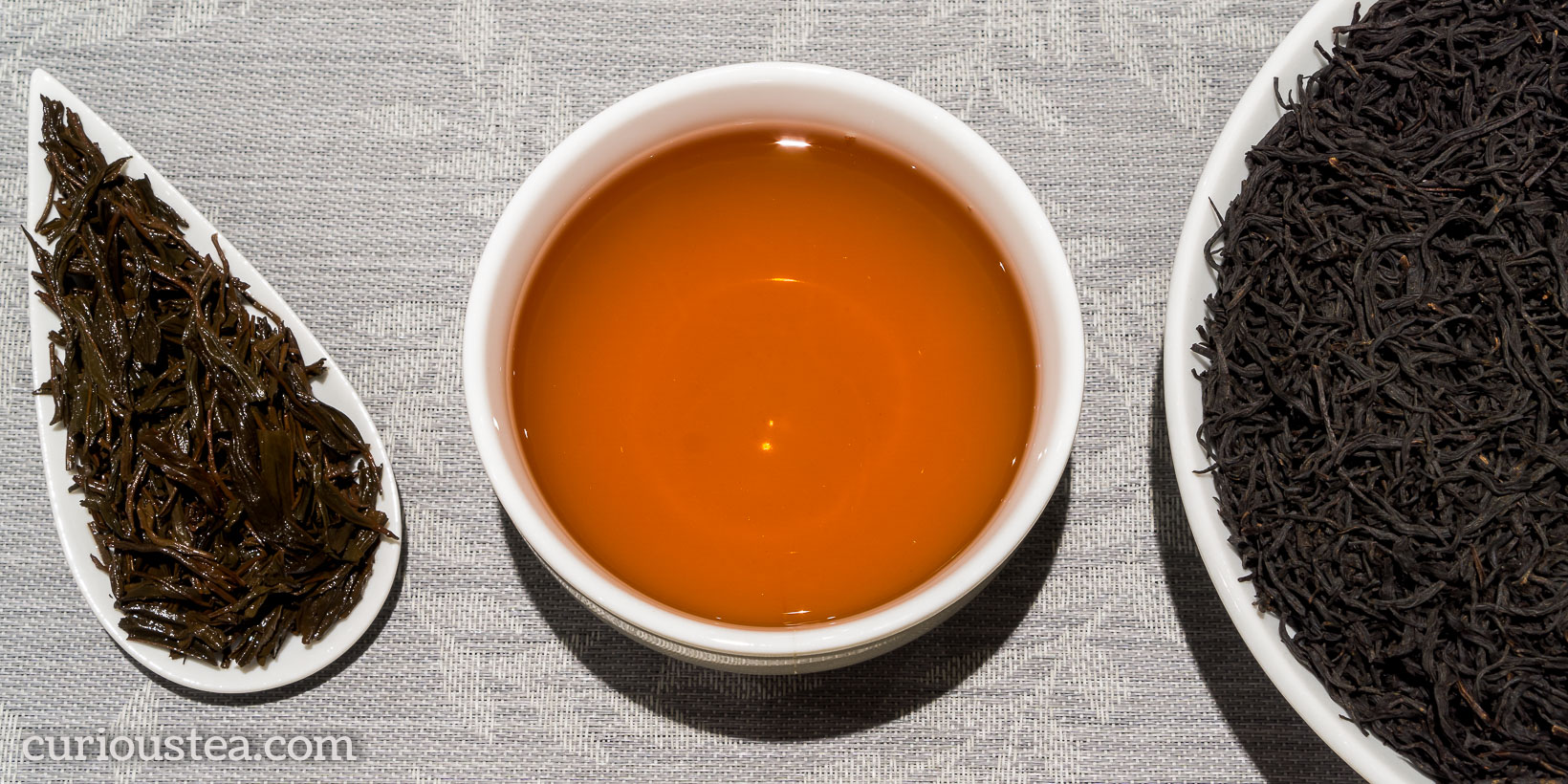
Wu Yi Shan Tu Cha (武夷山土茶) is a classic black tea from the famous Wuyi Mountain tea growing area of Fujian Province in China. Grown at high altitude, it utilises the local Tucha or Caicha plants. The small wiry leaves produce a balanced and smooth liquor with sweet malty notes and a mineral aspect. This particular batch is from the spring 2021 harvest.
The Wuyi Shan native small leaf tea plant (often Xiaozhong – 小種) is known as Caicha (菜茶), this being a generic term that is used to describe tea plants that are native or indigenous to certain parts of China. While these types of plants have differentiating features in different regions, they are still not uniform due to normal natural variation in the plants. So Caicha is not a specific cultivar but rather a type of a tea plant that can be found around Wuyi Shan that has small leaves and appeared naturally and over long time as a result of natural hybridisation. In this way, it is similar to zairai plants in Japan or tea plants found in most of South Korea.
The Tucha (土茶) part of the name is also used locally to refer to Caicha plants found in Wuyi Shan. It is also often used to describe wild tea. While in many cases the plants no longer grow wild, this is a descriptive name given to plants that either originated from wild plants or tea trees that are grown in semi-wild conditions. The semi-wild conditions generally mean that the trees are propagated by seed rather than cuttings and are left to grow on their own, often amongst other plants. This is beneficial not only for the flavour of the tea produced but also for local biodiversity as it avoids large monocultural plantations. Unlike uniform tea plantations, where the plants are trimmed to small bushes to allow ease of picking or machine picking, the semi-wild plants are generally allowed to grow to their natural height.
The leaves of this Wu Yu Shan Tu Cha tea are dark and wiry in appearance, a typical look for black tea from this area. It produces a dark amber liquor with a fruity, malty and lightly mineral aroma. The smooth taste is very well balanced with an array of classic Chinese black tea notes. The flavour is predominately fruity and malty, with the maltiness becoming more apparent as the liquor cools. There are floral notes, which combined with the sweetness are reminiscent of rose Turkish delight. Finally there is a touch of cocoa flavours also coming through. The aftertaste is tangy, a little mineral and lasting with no tannins. This is a very smooth and balanced tea that is very easy to drink!
It is best brewed at 90°C for 2-3 minutes, with multiple infusions.
You can also buy Wu Yi Shan Tu Cha black tea in our online shop.
Dan Cong Ba Xian Eight Immortals Oolong
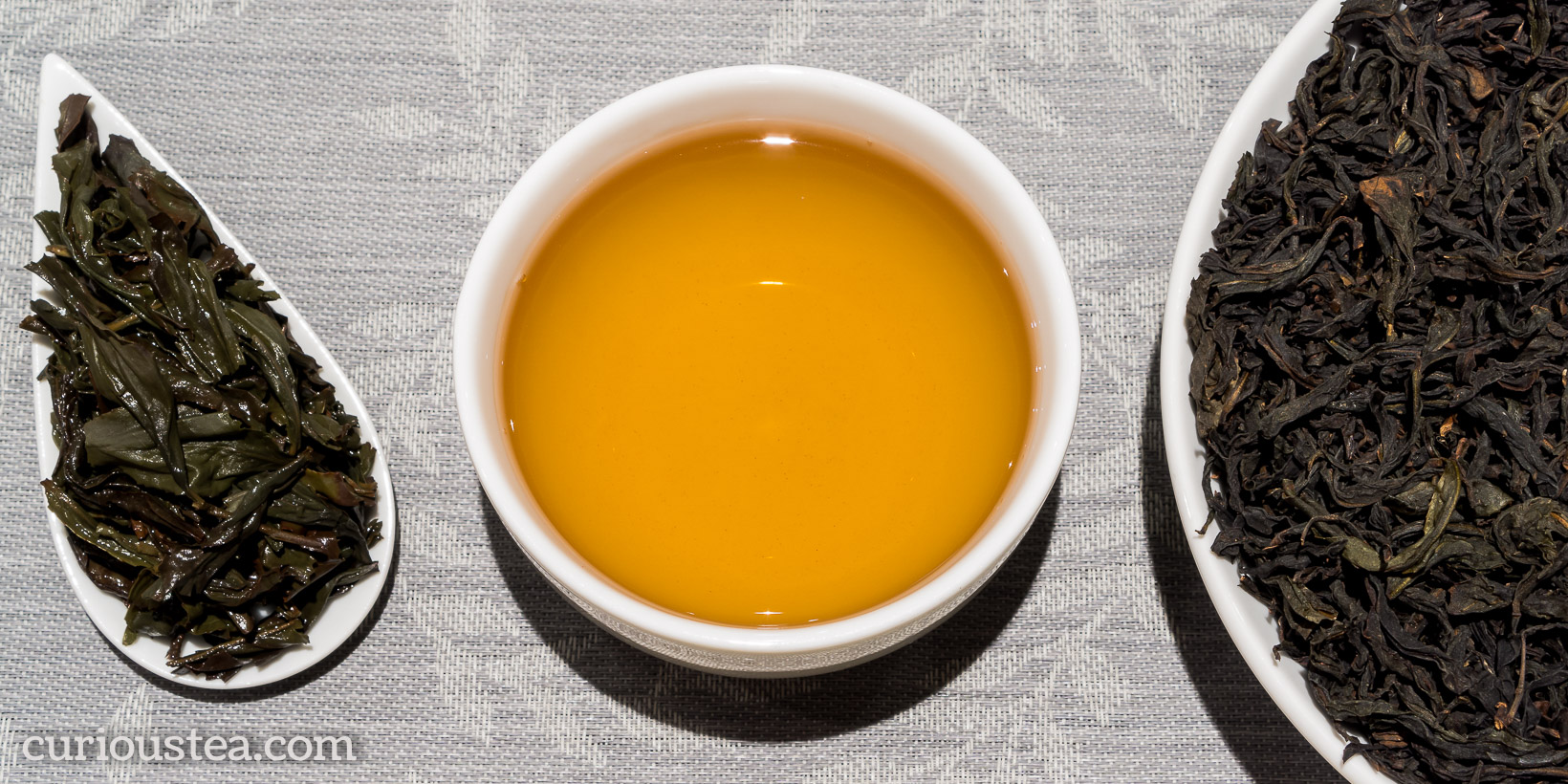
Dan Cong Ba Xian (单枞八仙), also known as Eight Immortals Oolong, comes from a tea garden of Master Huang located near Tianliao Village in the Phoenix Mountains at an altitude of approximately 600 metres. It is hand picked from the local Ba Xian cultivar trees that are about 30 years old. This tea produces a smooth fruity liquor with intriguing herbaceous middle notes and a light tannic touch on the aftertaste. This current batch was harvested and processed in April 2021.
This Ba Xian Oolong is know as the Eight Immortals Oolong, named after a group of legendary immortals in Chinese mythology. The story of this plant dates back to 1898 when a farmer took some cuttings and grafted them onto trees in his village. Out of the grafted plants, only eight survived, each eventually displaying a unique shape and appearance. Even though there was a difference in appearance, the quality and taste characters were surprisingly the same among the eight plants. When a visiting official saw the plants in 1958, he made the remark that they were like the Eight Immortals Crossing the Sea. To give the full proverb: Eight Immortals crossing the sea, each reveals divine powers (八仙過海,各顯神通; bā xiān guò hǎi, gè xiǎn shén tōng). The meaning behind this applies to situations where everybody shows their expertise to achieve a goal in common. So with time these plants became known by the Ba Xian Guo Hai name that eventually was shortened to Ba Xian that is most common today.
As with so many other Dan Cong cultivars, or varietals, the original mother bushes are descended from the ubiquitous Shui Xian (水仙) cultivar trees. Many sources indicate that the cuttings taken for Ba Xian were specifically from Da Wu Ye plants (in turn descended from Shui Xian plants). The farmers have then taken cuttings from these trees to preserve the unique nature of the mother bushes in the descendent trees. This has allowed careful selection process to occur over time, which allowed for the desired plant’s features to pass to the newly planted trees. The Ba Xian plants are descended from the original eight mother trees that shared those unique characteristics and made them so prized. Ba Xian is a relatively popular plant and the teas made from it are known for complex aromatic characters.
The leaves of this Ba Xian Oolong are medium oxidised and lightly baked. The wet leaf and the liquor have bakey, floral and tropical fruit aromas. The amber liquor is smooth, soft, fruity and sweet. It starts with stronger baked notes that progress to an intriguing herbaceous interlude in the middle of the flavour. The finish is clean, not overpowering and lightly tannic with notes of tropical fruits.
Brew western style, at 90°C for 3 minutes 3+ times. For best results we highly recommend gongfu style brewing. For gongfu, we recommend using traditional glass or ceramic teaware or a gaiwan. Or you can use your favourite yixing or chaozhou tea pot that already performs well with Dan Cong teas. Make sure to preheat all teaware thoroughly. Use water brought to 100°C and a very high tea to water ratio of 1g per 10ml. We find anywhere between 7g (more conventional gongfu) and 10g (more local chaozhou gongfustyle) per 100ml to be a good measure, depending on your taste. As an alternative visual guide, your brewing vessel should be about 75% full with leaves. Start with 10 second infusions for the first 4 infusions. Then start slowly increasing the infusion time after that. You can adjust the quantity of leaf and infusion time to your taste, however the bittersweet complexity that comes through when using the traditional method is very much a desired feature in Chaozhou.
Location of the conventional tea garden of Master Huang:
About our Dan Cong oolong teas from Master Huang.
Master Huang is an expert tea maker and has two gardens (one fully organic and one conventional) growing various varieties of Dan Cong trees. The organic tea garden is located in Gaoyuan Village (高原村) where the trees are approximately 15 years old. This garden is certified organic to EU and USDA standards. The conventional garden is located in Tianliao Village (田寮埔) where the trees are older, with most of them being approximately 30 years old. Both gardens grow a wide variety of Dan Cong cultivars used in making various traditional oolong teas. All trees are only handpicked, with most being picked in April; although the full picking season extends from March to May.
Dan Cong oolong undergoes a complex processing after picking, which starts off with withering in the sun on bamboo screens for 20-30 minutes, generally between 15:30 and 17:30 in the afternoon when the temperature is around 22-28°C. After the initial withering in the sun, the tea is brought indoors and allowed to cool in a well-ventilated place that results in reduction of moisture in the leaves, while increasing the aroma and flexibility of the leaf. This is then followed by a process known locally as ‘touch green’ (peng qing 碰青) where the tea leaves are shaken together to induce cell bruising of the edges of the leaves and achieve light oxidation. This process is done both by hand and mechanically with machines, usually at least 5 times and is repeated every two hours. In between each repetition the leaves are allowed to rest, promoting loss of water, increase in temperature and softening of the cells. Once the desired bruising and moisture reduction has been achieved, the leaves are pan-fried for about 15 minutes to stop oxidation. The leaves then undergo rolling to achieve the classic twisted Dan Cong shape. The rolled leaves are then dried to remove any residual moisture left.
Finally and most crucially the tea undergoes a roasting process, which is the main contributing factor to the variety of Dan Cong flavours. While of course the choice of the cultivar, the picking time and standard and initial processing all play a role in the final taste, the roasting process is really what brings out the wonderfully diverse flavours of Dan Cong teas. The roasting process differs for each tea and some will be more heavily roasted while others will go through a low level of roasting. Generally, the temperature is 90-110°C and the first roasting stage is about 2 hours. The second and third baking would be around 12 hours or more. Each batch of tea would be baked differently in order to achieve the desired outcome. Hence the skills and knowledge of the tea master are paramount in achieving the perfect flavour.
You can also buy Dan Cong Ba Xian Oolong tea in our online shop. You may also be interested in our other Dan Cong teas from Master Huang.
We really do hope that you enjoy this tea selection for May and are looking forward to the selection in our next box. Our June box will feature a Bai Ya pure bud white tea from Yongde in Yunnan Province and a Mao Feng green tea from Meng Ding in Sichuan Province. For the darker side of the selection we chose a Sejak black tea from the Choi Family tea garden in Boseong, South Korea and our popular Zheng Shan Xiao Zhong black tea from Fujian Province.
If reading this has made you curious about our teas, but you don’t yet subscribe to a monthly tea selection, you can sign up for our tea boxes in just a few clicks. We ship worldwide from London, UK.
We always love to hear from you, so if you have any questions, suggestions or just want to chat about tea, email us at contact@curioustea.com, via our Facebook page or via Twitter.
You can also follow us on Instagram for pretty tea photos.
Happy tea discoveries!

